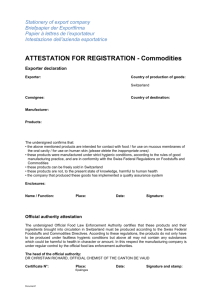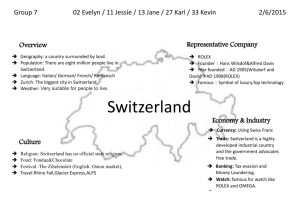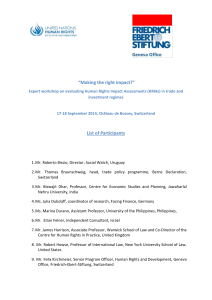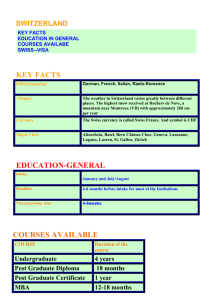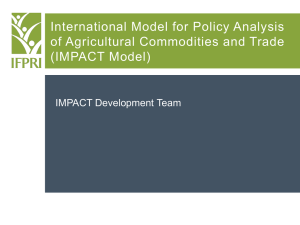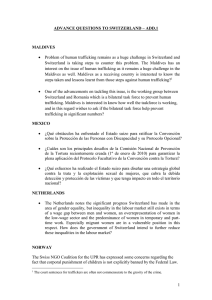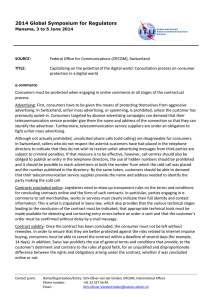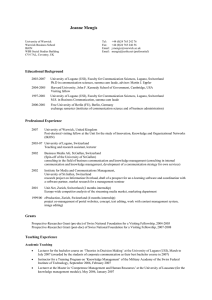Workshop on International Law, Natural Resources and Sustainable Development
advertisement
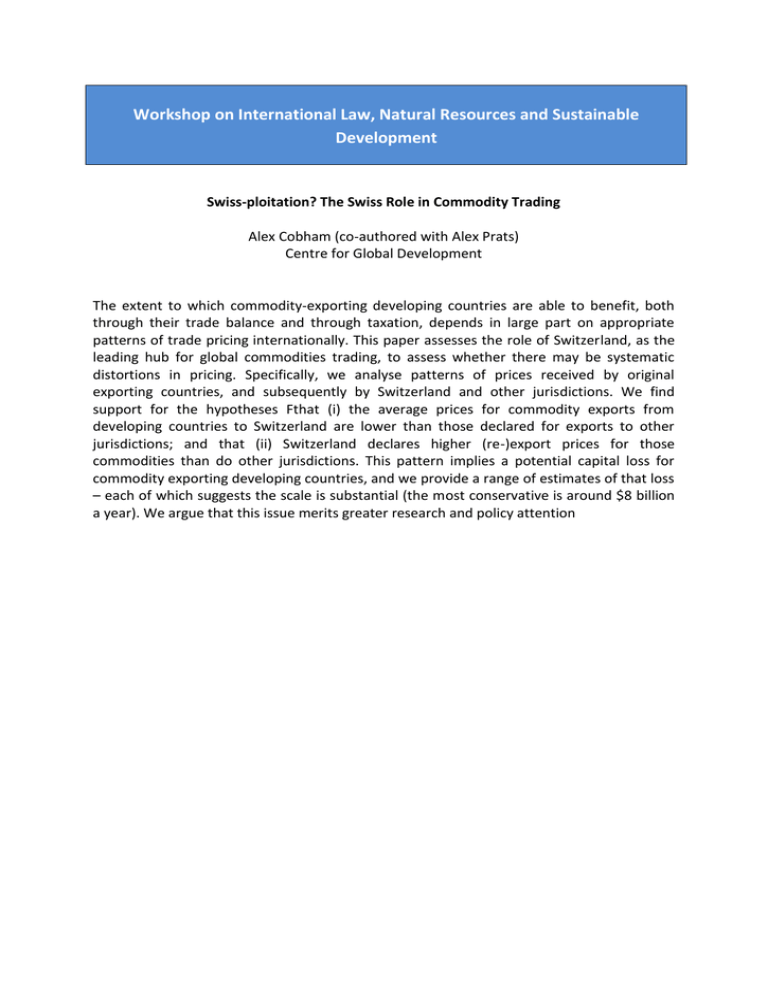
Workshop on International Law, Natural Resources and Sustainable Development Swiss-ploitation? The Swiss Role in Commodity Trading Alex Cobham (co-authored with Alex Prats) Centre for Global Development The extent to which commodity-exporting developing countries are able to benefit, both through their trade balance and through taxation, depends in large part on appropriate patterns of trade pricing internationally. This paper assesses the role of Switzerland, as the leading hub for global commodities trading, to assess whether there may be systematic distortions in pricing. Specifically, we analyse patterns of prices received by original exporting countries, and subsequently by Switzerland and other jurisdictions. We find support for the hypotheses Fthat (i) the average prices for commodity exports from developing countries to Switzerland are lower than those declared for exports to other jurisdictions; and that (ii) Switzerland declares higher (re-)export prices for those commodities than do other jurisdictions. This pattern implies a potential capital loss for commodity exporting developing countries, and we provide a range of estimates of that loss – each of which suggests the scale is substantial (the most conservative is around $8 billion a year). We argue that this issue merits greater research and policy attention
